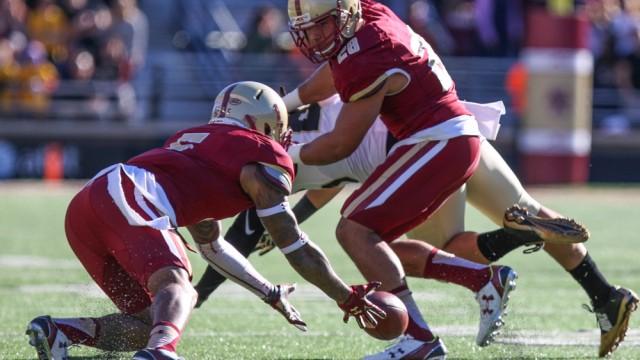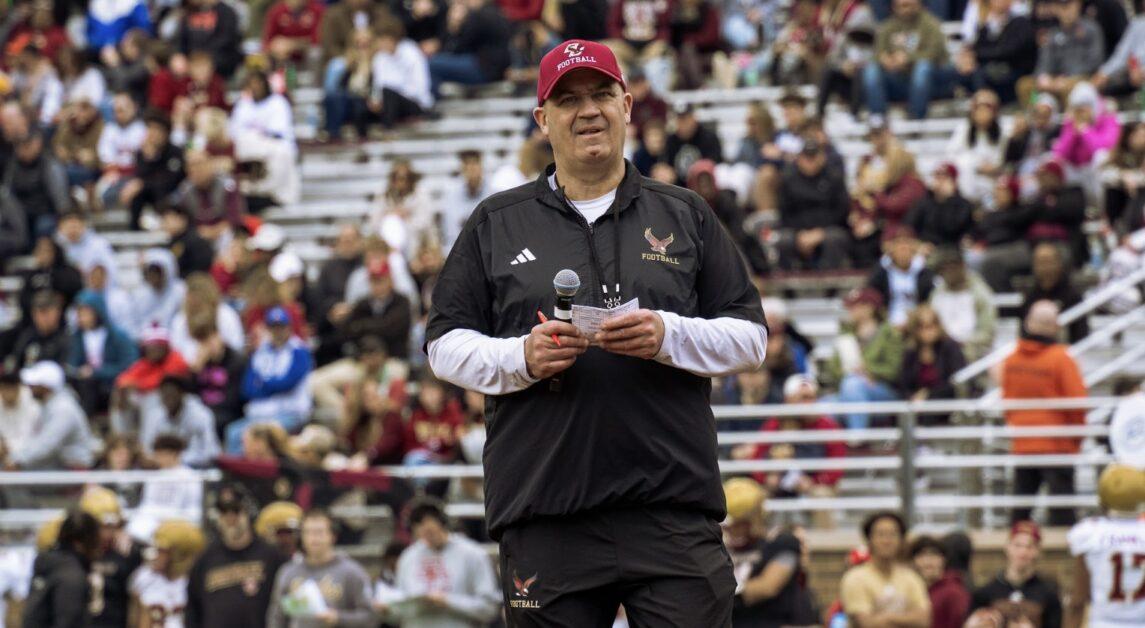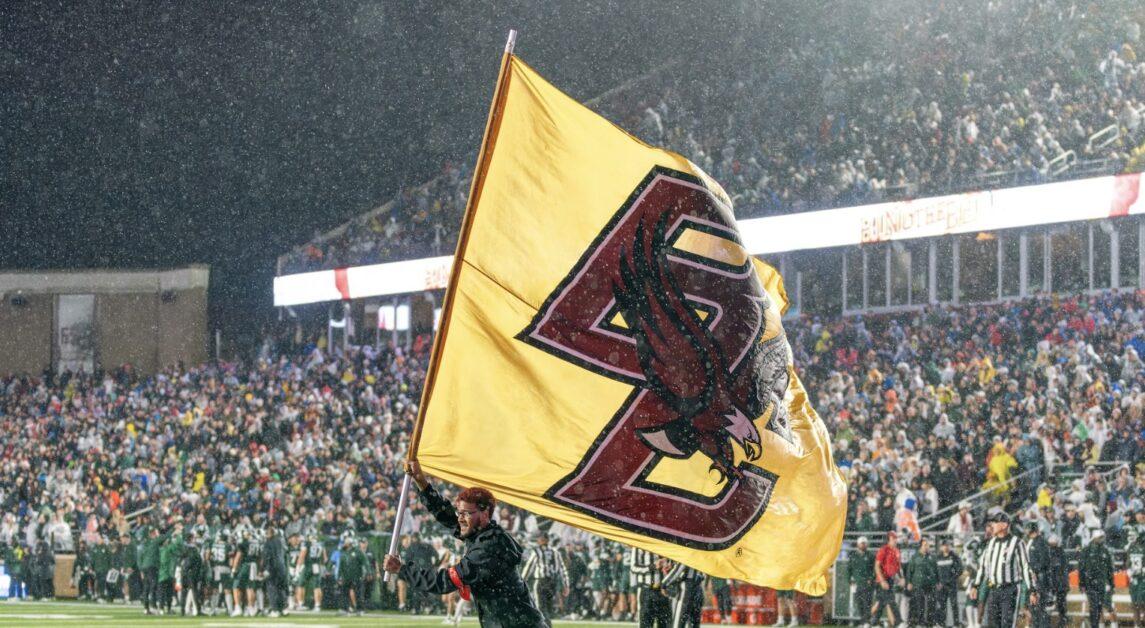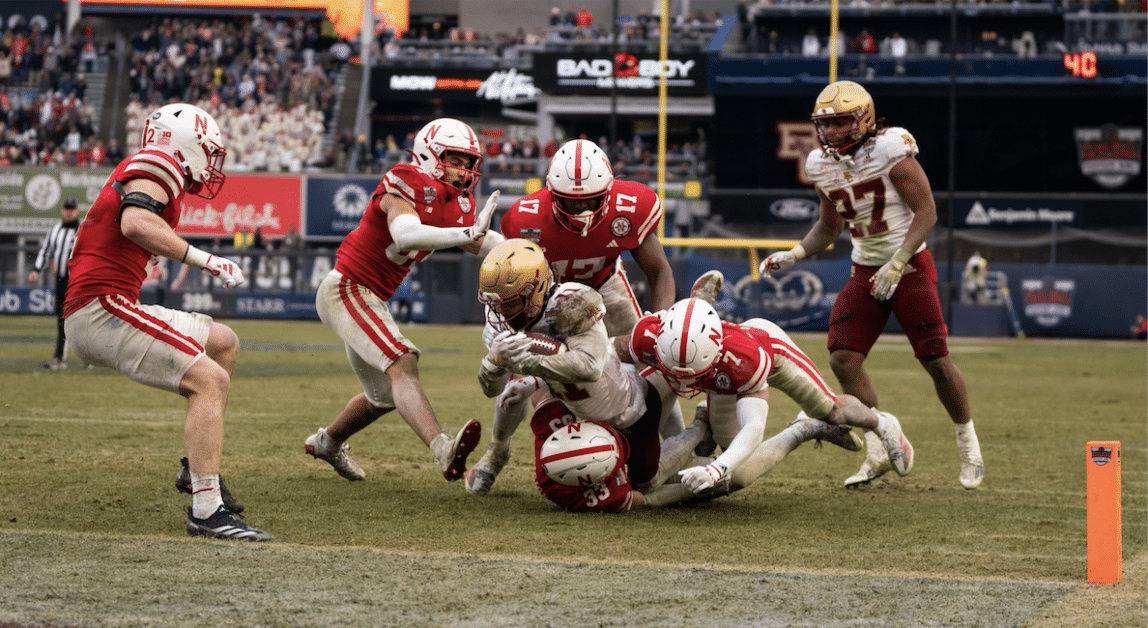In the post game-press conference, Steve Addazio got to the point where he could only repeat one phrase: “Four turnovers and two field goals.”
Eventually, he shortened it to just “four turnovers.”
Three fumbles and one interception. Those are what decided the game in Boston College’s loss to Wake Forest.
It wasn’t just the four turnovers committed by BC that were decisive factors, though. Wake Forest nearly gave away the game with two of its own.
The turnovers were especially defining since they came in groups, happening back to back in mirrored fashion.
In the first half, Sherman Alston let a pass deflect off his hands and into the path of a Wake Forest defender. On the ensuing drive, BC got the ball back on a similar tipped ball, which was caught by Connor Strachan.
Then at the end of the game, Flutie lost a ball on a QB sneak in the end zone, only for Wake Forest to give it right back when Matt Milano forced a fumble.
Defensively, BC’s top-ranked defense finally forced fumbles and interceptions against the Demon Deacons. For a defense this good, it would follow that it would create a lot of turnovers. Either the pass rush would hit the quarterback or running back in the backfield and knock the ball loose, or the constant pressure from the front seven would force a lot of errant and rushed throws, resulting in picks.
For some reason, this hasn’t been the case this year. The fumble and interception against the Demon Deacons were only the third and fourth turnovers of the year. The other two came in week two against Howard. For two ACC games and two non-conference games this year, BC’s defense has done everything to stop opposing offenses except physically taking the ball from them.
To call this a shortcoming of the defense is preposterous. In no way is it reasonable to critique the No. 1 defense in the country for anything it does in a game. Steven Daniels might lament letting the fumbled ball roll through his legs and not picking it up for the touchdown, but that is a lot of coulda, shoulda, woulda. The fact of the matter is that they did recover that fumble late in the fourth quarter.
This defense has put BC in a position to win in every game this year, without forcing turnovers, so whether it gets a few interceptions or not does not make it any less worse.
Perhaps it just comes down to luck, whether it be a fortunate deflection or bounce falling into the path of a BC player.
Regardless, the surprising lack of turnovers on the defensive end highlights just how bad BC’s offense is.
The only reason that the Eagles were ever in the game was because the defense gave them the ball back with great field position, yet the offense could not capitalize due to inept play-calling and inexperience.
It’s really hard to get the ball handed to you on the 5-yard line with a minute to score a touchdown or field goal and fail to do so, yet BC somehow found a way to do just that.
The Eagles can barely muster any offense to put together a long drive when they are pinned back deep in their own territory. Given the injuries and youth on the team, it’s unfair to expect them to always generate some movement.
But when they finally get the ball on the other side of midfield thanks to an interception or fumble and still can’t generate any offense to put points on the board, then that’s unacceptable.
You cannot ask anymore from the No. 1 defense in the country, yet BC offense’s needs more out of a defense than just giving up three points. It needs every drive to start on the 5-yard line after a fumble recovery, and then maybe it can get in the endzone. That’s a ridiculous statement by any standards, yet it’s extremely close to summing up just how dreadful the Eagles are with the ball in their hands.
On Saturday afternoon, the four turnovers that BC committed emphasized the dire nature of the offense. On the one hand, the offensive unit needs turnovers from the defense to make anything happen. But on the other hand, it gave the ball away four times, completely negating anything the defense did.
The main justification for Addazio’s conservative and stubborn play-calling has been minimizing mistakes and eliminating turnovers, especially because the team is so young. The argument is rational, since turnovers significantly damage the confidence of inexperienced players. But when the situation becomes this bad (i.e. scoring 21 points in four games), it’s time to let it all go. There is no difference between making mistakes and learning from them, and limiting mistakes when you are going to lose anyway. In a rebuilding year, you stop worrying about the score and start making sure that your players are learning, and one of the best ways to learn is from making mistakes.
Any way you look at it, whether it’s the surprising lack of turnovers throughout the season or the wasted opportunities that came off of turnovers and BC’s own turnovers against Wake Forest, you reach the same conclusion: BC’s offense, through a combination of bad coaching and raw mistakes, is inexplicably bad.
Featured Image by Drew Hoo / Heights Editor













